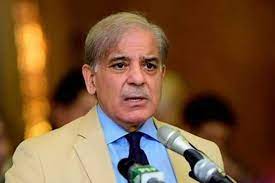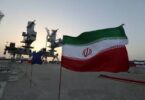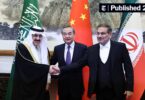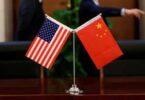Prime Minister Shehbaz Sharif said that the government was taking all possible measures including the provision of free flour to the needy to reduce the difficulties of poor people in the holy month of Ramazan. The premier ordered NADRA, BISP, and other government departments to broaden BISP’s database by including all eligible people and ensuring the provision of free flour to all needy. The Prime Minister also directed the authorities to immediately open counters of the National Database and Registration Authority (NADRA) and BISP at the flour distribution points to facilitate the public.
The holy month of Ramazan began amid heightened inflation, while hoarders and illegal profiteers have unleashed unrestricted unimaginable price hikes rendering essential items and commodities out of the reach of the poor people. Recently, the coalition government has announced the provision of free-of-cost wheat flour in Punjab, Khyber Pakhtunkhwa, and the Federal Capital Territory to provide some relief to the poor during the Ramazan. Long queues of poor and needy at sales centers, multiple incidents of mismanagement, and clashes had been reported in different cities, while over half a dozen deaths also occurred during the distribution of free flour over the past few days.
The government machinery including District level management, revenue department ACs, and DCs are at work, while the Provincial Chiefs and the Prime Minister rushed to the free Atta sale points in the field to oversee the ground situation, make a photographic record of flour supply to authenticate their public service and highlight their role in the fight against the poverty. Interestingly, neither the federal government nor provincial administrations in Sindh, Balochistan, GB, and Azad Kashmir initiated such magnificent endeavor to provide relief to the poor during the holy month, whether the people living in those regions are wealthier and not entitled to this privilege or no imminent polls are scheduled there.
Realistically, the recurrent waves of inflation pushed over 45 percent population into multidimensional poverty, while a significant portion of the country’s population had left with no choice except to reduce their daily meal, to short cut their necessities in terms of clothes, healthcare, children’s education to satisfy their urgent expenses. According to the World Bank report, 2 million Pakistanis get below the poverty line on an annual basis while these figures have touched 18 million in the current year.
Meanwhile, unrestricted price hikes, reduced business and industrial activities, massive unemployment, and poor governance continuously added to the problem of poverty. The coalition government has struck a unique situation as the rulers confront a wide range of economic and administrative issues along with aggressive opposition, negative public approval, and the IMF’s refusal for the revival of EFF program. A majority of friendly nations are annoyed with Islamabad’s frequent requests for financial support and categorically advised Pakistani rulers to stand up on their own feet.
Unfortunately, after seven and a half decades of independence from colonial rule, our nation witnessed an acute depletion in all sectors ranging from agriculture, technology, trade and tourism, industry, education, power generation, and others. Every nook and corner of the national life exclusively portrays the chaos, incompetence, and selfishness of the leaders and caretakers. As the national economy has practically collapsed, the country’s leadership is still pursuing surgery politics, and cosmetic measures to cure an everlasting ailment.
Previously, the incumbent rulers demanded a sacrifice from the masses and then ruined all gains through the reckless implementation of Dar’s dogma. Realistically, one bag of free flour will bring no change in public lives, the government must provide targeted relief in a dignified manner permanently to all poor segments of society. Meanwhile, a long-term and comprehensive strategy is essential to end persistent economic frailty once and for all.







